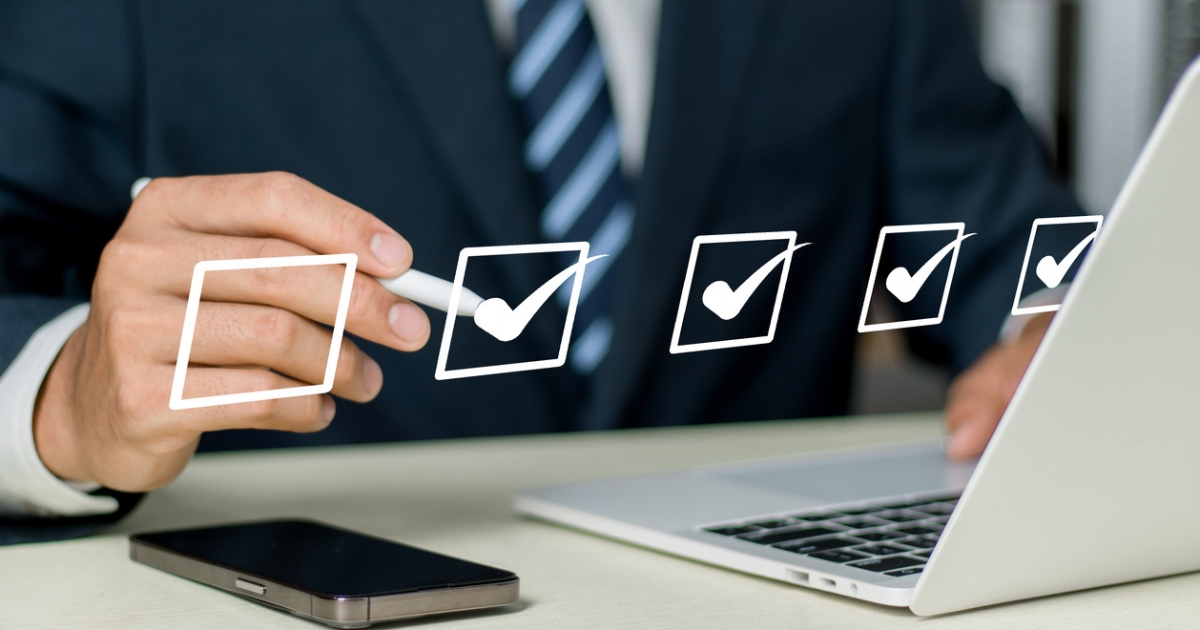There is a common misconception that all cold calling is illegal under the Telephone Consumer Protection Act (TCPA). But the TCPA does not outlaw the practice of cold calling—it never even uses that phrase.
Instead, the TCPA places restrictions on certain types of calls. If you engage in cold calling, it is important to understand the TCPA’s nuances to ensure your calling practices stay compliant.
What is Cold Calling?
Within the context of the Telephone Consumer Protection Act (TCPA), cold calling generally refers to sales calls made to strangers. The TCPA refers to this as “telephone solicitation,” or more simply: the act of making unsolicited telephone calls to encourage the purchase, rental, or investment in property, goods, or services.
Typically, cold calling is when a caller makes a phone call to another person who they had no prior contact with. This person has not consented to receive a sales call from the caller, and has not expressed any interest in the caller’s property, goods, or services.
For example, a person would be engaging in cold calling if they pulled out a phone book and started making calls to random numbers to sell health insurance.
However, cold calling would not include a variety of other calls the person isn’t necessarily expecting, including:
- Debt collection calls (because nothing is being sold)
- Market research calls
- Political calls
- Non-profit or charitable solicitation calls
Cold calling can consist of B2C (Business-to-Consumer) and/or B2B (Business-to-Business) cold calls. The TCPA prohibits certain types of both.
To understand the types of cold calls that are allowed under the TCPA, it is helpful to first understand the types of cold calls the TCPA prohibits.
What Types of Cold Calls Does the TCPA Prohibit?
The TCPA prohibits three types of cold calls, each with their own rules and exceptions:
- National Do Not Call Registry (NDNCR): Cold calls, including live agent cold calls, made to those who have registered their residential phone numbers (landline or cell phone) on the NDNCR.
- Automatic Telephone Dialing System (ATDS): Cold calls made to cell phones (or any other phone line that charges the recipient for the call) using an ATDS/autodialer.
- Artificial or Prerecorded Voice: Cold calls made to cell phones or residential phone lines using an artificial or prerecorded voice.
Live-Agent Cold Calls to Residential Telephone Numbers Registered on the NDNCR
The TCPA prohibits cold calls made to residential phone numbers registered on the National Do Not Call Registry (NDNCR). But you can still make cold calls to phone numbers not registered on the NDNCR. This is why scrubbing against the NDNCR is necessary if you engage in cold calling.
In fact, these restrictions only apply to B2C cold calling. This is because the TCPA’s NDNCR rule does not apply to business phone numbers.
For example, if the main phone number for a Home Depot store was registered on the NDNCR, it is still legal to cold call that business number. But if you are cold calling a business number registered on the NDNCR, you should be certain it is actually a business number.
It is generally easier to verify whether a landline is a business number than a cell phone number. So-called “intermodal ports” of numbers from landlines to cell phones make it difficult to perfectly identify whether it’s a landline, VoIP, or wireless number in each case.
Exceptions to B2C Cold Calling on the NDNCR
If a caller is seeking to make B2C sales calls to numbers registered on the NDNCR, such calls can be made under one of the following circumstances:
- Express Consent: The person being called has provided the caller with prior express invitation or permission to receive sales calls.
- Prior Business Relationship: The caller has an established business relationship with the person being called.
History of the NDNCR & Considerations for B2B Cold Calling
When the Telephone Consumer Protection Act (TCPA) was enacted in 1991, Congress gave the Federal Communications Commission (FCC) the authority to create rules that protect people with residential phone numbers from receiving unwanted sales calls.
That authority included the ability to create a single national database to compile a list of residential phone numbers for people who objected to receiving sales calls.
The FCC never actually created that database and its authority to do so expired in 1992. Instead, it was the Federal Trade Commission (FTC) that Congress tasked with creating the NDNCR in 2003.
However, when the FTC established the NDNCR, the FCC used their expired authority to create a rule prohibiting unsolicited sales calls made to residential numbers registered on the NDNCR (subject to certain exceptions).
Then—in what many claim was an overreach of its authority—the FCC ordered that the NDNCR rule applies to cell phone numbers, too. The majority of federal courts have held this stance, as cell phones can be considered residential lines when used for personal residential purposes.
This has created an issue when making cold calls to cell phones. Courts have held that whether a cell phone constitutes a residential line depends on various factors, including how the cell phone is used and in what capacity their cell number is presented to the public as a business number.
This issue often arises when unsolicited sales calls are made to self-employed people who only have one cell phone and use it for both work and personal purposes.
In these cases, a caller might make what they believed to be a legal B2B cold call, only for the person who advertised their number as a business number to sue them and claim it’s a private residential number. For this reason, businesses should exercise caution when making cold calls to cell phone numbers registered on the DNC list.
Cold Calls Made to Cell Phones Using an Autodialer or an Artificial/Prerecorded Voice
For both B2C and B2B, cold calls cannot be made to cell phones using an Automatic Telephone Dialing System (ATDS/autodialer) or an artificial/prerecorded voice. These calls require prior express written consent (PEWC).
At its most basic level, PEWC is when a call recipient clearly and conspicuously authorized the caller—in writing—to send them telemarketing messages using an autodialer or an artificial/prerecorded voice.
Without this consent, cold calls cannot be made to private or business cell phone numbers using such technology.
Cold Calls Made to Residential Telephone Lines Using an Artificial or Prerecorded Message
Unlike the previous prohibitions regarding cold calls to cell phones, there is no prohibition against making cold calls to residential telephone lines using an autodialer; the caller just can’t also use an artificial or prerecorded message when making such cold calls.
However, a caller can make sales calls using an artificial/prerecorded message if the recipient has provided their prior express written consent. But don’t forget about the prohibition against making cold calls to residential telephone numbers registered on the National DNC Registry. This prohibition only applies to B2C cold calls.
For B2B cold calling, there are fewer regulations. Under the TCPA, it is permitted to make a B2B cold call to a business’s landline using an artificial or prerecorded message. And B2B calls made with an autodialer are fine as long as you do not occupy more than one of the business’s lines at a time.
How to Ensure You Are Making Compliant Cold Calls
In short, cold calling is legal in the United States—but there are many regulations you need to follow. Taking this into consideration, here are three easy steps that you can take to ensure your cold calls are TCPA compliant:
- Scrub the phone numbers you’re cold calling against the National Do Not Call Registry (NDNCR).
- Avoid using an autodialer to make cold calls.
- Avoid using artificial or prerecorded voices when making cold calls.
It is also crucial to adhere to any local or state cold calling rules, which may go beyond the federal rules that were covered in this article.
If you engage in cold calling, having the right tools can make compliance more manageable. Readymode™ is an all-in-one call center software for outbound sales teams, with multiple features designed to make compliance easier.
From integrations that assist with list scrubbing, to a predictive dialer that’s TCPA compliant (not an ATDS), Readymode can help you optimize your cold calling while following the rules.
Explore how Readymode can help you achieve your business and compliance goals.
This article is only offered for informational purposes; it is not legal advice. Please consult a qualified attorney for your specific compliance needs.
Joe Bowser
Joe Bowser is a partner at Roth Jackson. He has been practicing communications and marketing law for two decades. He advises and defends calling and SMS platform providers (like Readymode), carriers/VoIP providers, and heavy users of those services in their wide range of compliance needs. In his spare time, you can find him taking his boys to their sports, getting in a workout of his own, or catching an Arsenal match.







